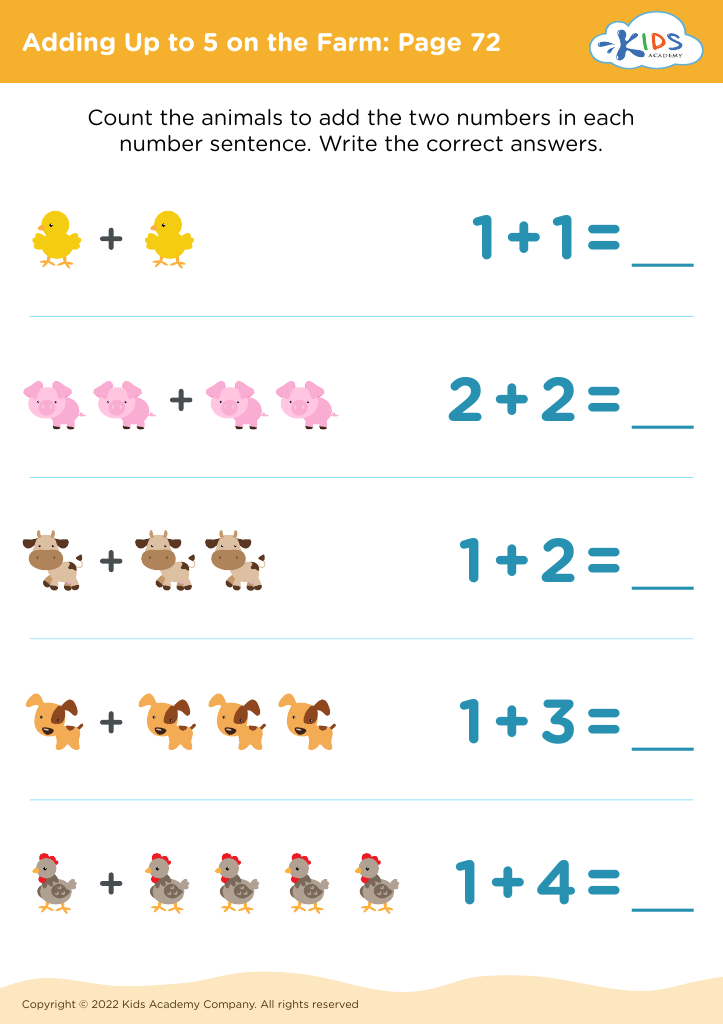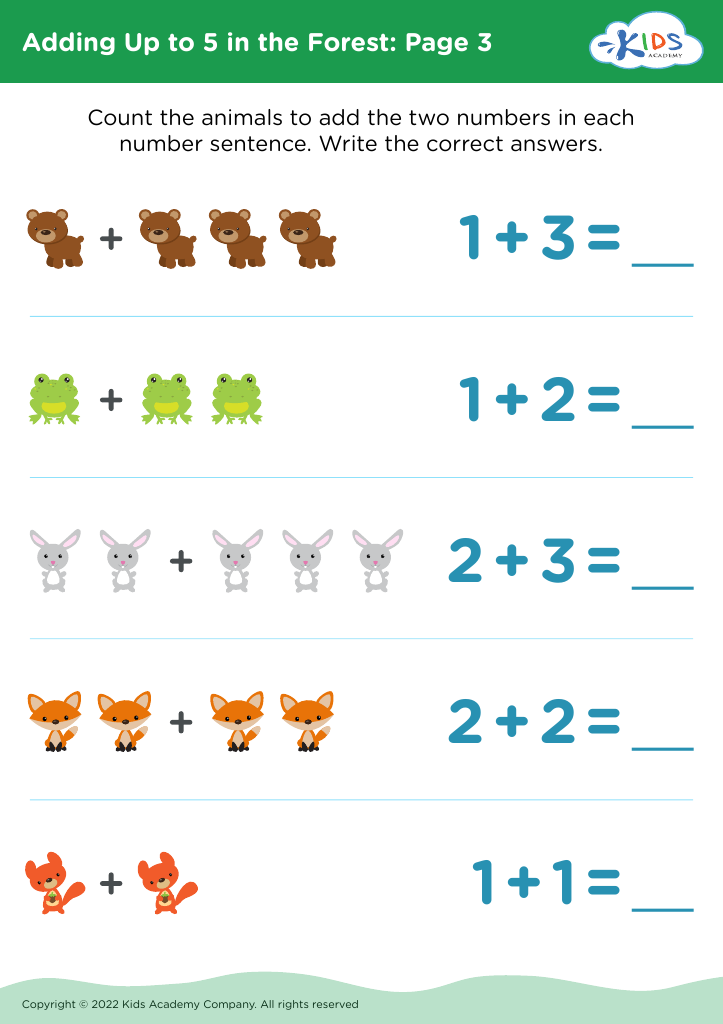Understanding equality Addition Worksheets for Ages 4-9
3 filtered results
-
From - To
Explore our "Understanding Equality Addition Worksheets" designed specifically for children aged 4-9! These engaging and interactive worksheets focus on the concept of equality in addition, helping young learners grasp the fundamental principles of balancing equations. Featuring colorful visuals and age-appropriate activities, our resources facilitate hands-on learning while making math enjoyable. Each worksheet fosters critical thinking and problem-solving skills as children practice creating and solving addition statements that demonstrate equality. Perfect for classroom use or at-home practice, these worksheets will help build a strong mathematical foundation and boost your child's confidence in arithmetic. Start your child’s math journey today!
Understanding equality in addition for children aged 4-9 is crucial for several reasons. First, this foundational skill cultivates a solid grasp of mathematical concepts that are essential for future learning. Recognizing that equations like 2 + 3 = 5 and 5 = 2 + 3 hold the same value helps children develop number sense and enhances their ability to see relationships between numbers.
Furthermore, teaching equality in addition encourages logical thinking and problem-solving skills. Children learn to approach math with a critical eye, allowing them to make connections between different mathematical ideas. This builds their confidence, making them more enthusiastic about tackling mathematical challenges.
Moreover, early understanding of these concepts can help prevent math anxiety later on. When children feel secure in their comprehension of fundamental math principles, they're less likely to struggle as they advance in their education.
Lastly, reinforcing the idea of equality in addition fosters collaboration and communication skills among young learners. Engaging in discussions about solutions and strategies helps them articulate their thinking, paving the way for collaborative learning experiences. In sum, understanding equality in addition is essential for building a strong mathematical foundation and supporting children's overall cognitive development.












.jpg)









